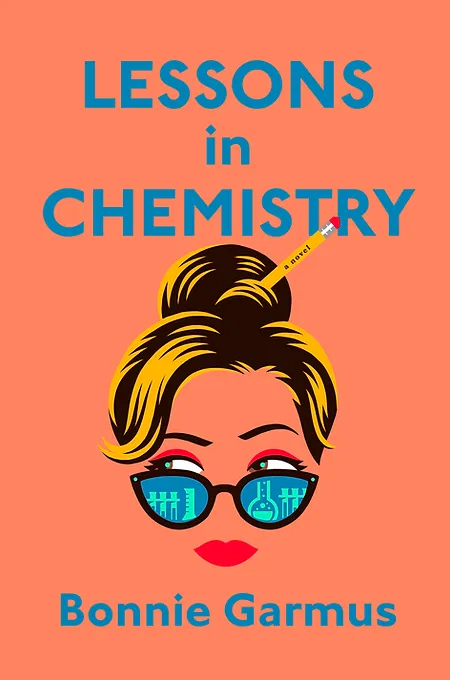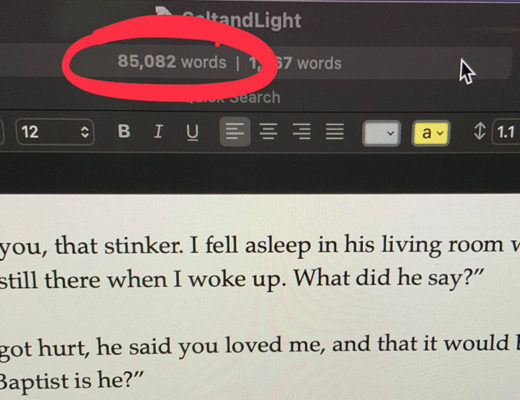As a novelist who hopes to be published someday, I no longer write reviews that are critical. If I can’t muster four or five stars, I just skip writing the review on Goodreads. These writers are published. I am not.
By the way, a four-star review from me is still very good. Since I first made it through Green Eggs and Ham, sitting at a Kaufmann’s lunch counter in Pittsburgh with my mom, I have read thousands of books over the past 67 years. Four stars and you’re in the top 20 percent. Five stars and you’re in the top 10 percent.
I just gave five stars to Gabrielle Zevin’s Tomorrow, Tomorrow and Tomorrow. I played arcade video games during the Pac Man era, and that was as intense as it got. But I thought her premise, about two childhood friends who design and launch video games, was so unique. It was also an unusual, offbeat love story, and the characters and story were compelling. It drove me out of my comfort zone as a reader, and as a writer I was in awe of the research she performed to make the 90s era of gaming come alive.
I also hope people will be kind to me one day, although I realize it doesn’t really work that way. But being an upstanding “literary citizen” is an important aspect of being a writer. That means supporting other writers and their work, rather than relentlessly promoting yourself, or being arrogant or nasty.
“Being a good literary citizen not only supports other writers on their journey to publication, it helps you build your own platform, expand your audience and gets the word out about your writing.,” Writer’s Digest says in 6 Steps to Becoming a Good Literary Citizen. “When you lift up other writers, they will do the same for you when it’s your turn to shine.” Let’s hope so!

Not everyone who rates and reviews books on Goodreads and Facebook is a wannabe debut novelist like me. But opinions are so personal and specific. Negativity can be triggered by something very minor, or by a misunderstanding. So often these reviews reveal more about the reader than the book or the writer. Some people love to be the “outlier,” the person who doesn’t understand “what all the fuss is about.” Or they were “bored.” The book was “boring.” Or they couldn’t finish it, DNF. Or they thought the book was “too feminist” or “too political.” This has been a recurring response to Lessons in Chemistry by Bonnie Garmus. I gave it five stars; it was a tour de force of point of view, among other things, with POV even inhabiting the lovable mutt, Six Thirty. Garmus, the debut author, is in her mid-60s with a critically acclaimed New York Times bestseller. So . . . there. My only criticism is the book’s pink, cartoonish cover, which probably led many people to believe Lessons in Chemistry was an unassuming beach read; the cover kept me from reading it for almost a year. (I also dislike the cover and font of Tomorrow, Tomorrow and Tomorrow, but I got over it.)
Goodreads is a bit like the Wild West these days, with people virally trashing books that haven’t even been released yet, and no requirement (unenforceable, anyway) that a reviewer must actually have read the book. The New York Times wrote about it recently. A favorite author of mine, Olivia Hawker, was ravaged with one-star reviews for The Ragged Edge of Night because she drew comparisons between the 2016 election and the Nazi regime. Not in the novel itself, mind you, but in her historical notes at the end.
I have had more luck with the suggested reading algorithms teed up for me by Amazon than by wading through Goodreads reviews loaded with personal baggage and petty resentments. And no amount of personal enthusiasm for a book can penetrate someone else’s reading armor, molded by a lifetime of preferences and experiences. I was incredibly moved by Midnight Library; its theme of regrets led me to the Drexel MFA program. But I don’t think I convinced anyone else close to me to be moved by it, or even to read it.
You don’t have to be an aspiring novelist to practice good literary citizenship. Start as a reader by recognizing the trial and accomplishment of actually writing, editing and publishing a book. You can still hate a book or be bored by it, of course. But what can you say about it, thoughtfully, that will help others make a considered decision to read it or not read it?






No Comments